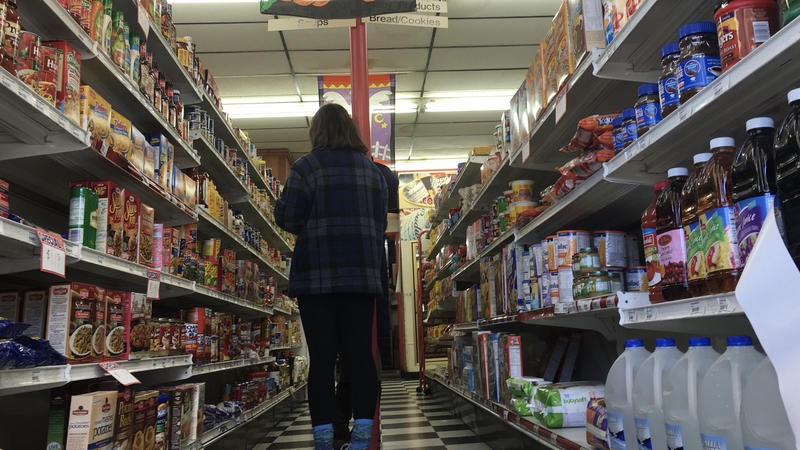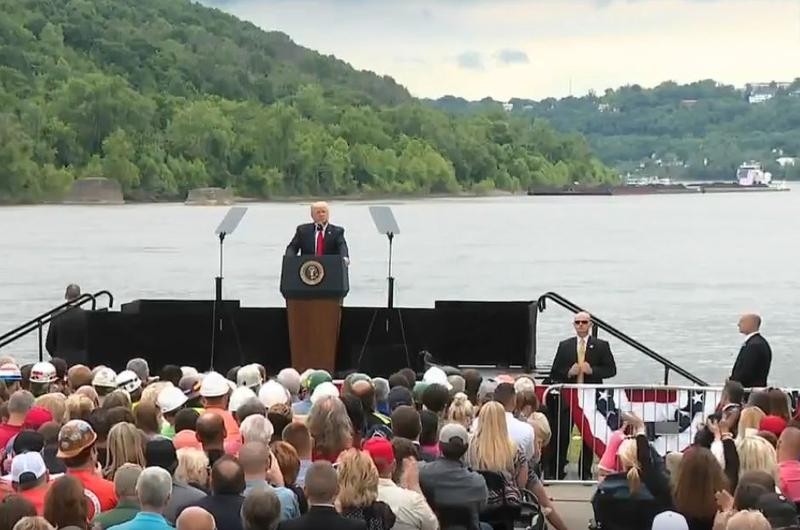I met Rick Bragg once. I’d spoken in a basement at a conference at East Tennessee State where he was the headliner. A buddy asked if I wanted to meet him. I don’t have a lot of heroes. I’d read “It’s All Over but the Shouting,” the book about his mama. And I’d pored over Bragg’s New York Times dispatches from the Haitian holocaust. Stunning accounts of evil, blood in the streets, courage and sacrifice. They read like campfire stories.
That night there was a wine and cheese quadrant marked off in couches and chairs in an open hallway. I waited in line there for my introduction. Just in front of me was some book club person who asked him what he’s working on now, the kind of direct question polite people don’t ask.
Bragg said when he was writing about his mother he’d sworn he’d never write about his daddy (who was a drunk and mean). But he said recently he’d noticed that his dad’s pals were getting up there, and if he was ever going to sit down and talk to them, that this was the time. Then he paused and said, “And … ”
I just blurted, “And there’s nothing better than being in the presence of old men.”
He looked at me as if astonished, pointed, and said, “That’s exactly right.”
+ + +
My dad was no Joan of Arc. He thought being a good citizen was taking out the garbage, paying most of your taxes, and not parking in front of the fireplug. But he did this one thing that no one saw coming. It would be gilding the lily to say he turned down a bribe, or even that he refused a kickback. He just did the right thing because he didn’t like a guy on the other end of the transaction, and I’ve come to see the public good in that.
My father sold furniture in my granddad’s store. He maybe made a hundred bucks a week. Before that he sold tires and appliances at the Firestone’s and made less. The only civic organization he ever joined was the Jaycees, and I am pretty sure that was because his boss at Firestone’s, George Roach, was the club president. The odd snatches I remember about his time in the Junior Chamber of Commerce is mainly that Dad went to the meetings on Tuesday nights, that once Mom proudly told me when he’d been elected second vice president, and on a night when he missed a meeting several men showed up at our house with a caged goose that Dad, no matter the cuss words, was compelled to keep till the next Tuesday meeting. Meaning I had to look after that goose. And it was tush-hog vicious. They say birds don’t have teeth, but this one had saw blades. It would go after a finger with a marksman’s precision. (Why would a thinking person ever want to be a Jaycee?)
It was a hard time in East Kentucky, but we were not bad off, certainly not by coalfield standards. There were kids I went to school with who would knock on the door Saturday mornings with a note pinned on their shirt. I’d get Mom, who’d unfold the note, go to her pocket book, and pull out something for the family. That was poor. You’d see a little boy wearing his sister’s hand-me-down coat. That was poor. Price of coal fell to $2 a ton, wildcat strikes, massive layoffs. We had a car, a house, and Dad had a job. We were taught never complain.
I was in the second grade, maybe third, when we got a new car. A lemon and white Plymouth with fins. Everybody said, “Sharp.” (Before then Dad drove a 1951 humpback coupe out of some Broderick Crawford movie. It had a floorboard pedal for the starter. It had survived the ’57 flood but had retained faint smells.)
People on our street rarely got new cars. Neighbors would stop in just to talk about the color. They would reach inside the window and rub their hands across the seat covers. And in the very first week my grandfather asked to drive it to the furniture market in High Point, North Carolina.
That Sunday evening I was in my pajamas watching TV when there was a small knock on the door. I ran to open it and it was my grandfather, hesitating, with a little Band-Aid on his chin. He looked at my dad and said, “I wrecked your car.”
I was crushed, yet Dad did not hesitate for an instant. “But are you OK?” he said and rushed to my grandfather, reached for his arm. (We are not huggers.)
I have been puzzled ever since. How do you know what’s right to say or do in the moment you get? Maybe salesmen know it, but not most of us.
Dad was always trying to launch a second business. First when we lived in Florida he picked up wind-blown coconuts and sold them to gas stations on the tourist routes. Later he came up with more successful enterprises like a Laundromat, a dry cleaners, and selling ice machines to liquor stores and convenience marts. But early on, he and his life-long friend, Joe Pat, decided to become Realtors. That meant passing the test and getting a real estate license from the state. For months the two of them read prep books and quizzed each other at night. And when they passed the exam, they started running ads in the paper.
I don’t know if they planned to get rich, but I remember Joe Pat talking about living in Texas. He said everybody there with any money at all had an air-conditioned car, so when he would drive up to a motel or a business he’d roll up his windows a half mile away, no matter how hot, just so people thought he had money. For Dad then, we were living six people in a two-bedroom house, and I think he just wanted to get a bigger place.
+ + +
When I was a kid and people asked what I was going to be, I’d say a senator. Not a doctor or an astronaut. I liked politics. I read JFK’s “Profiles in Courage.” I handed out cards on Election Day for city commissioner and governor. My grandfather would take me to his breakfast club every week to talk politics with the opinionated shopkeepers (who hated the Kennedys) and our mayor who made false teeth for a living.
My dad thought it was funny that I wanted to be a Republican. No one in his family had ever voted for one. He even got me a ride to the inauguration of Louie Nunn, the first GOP governor of Kentucky in 30 years. And when the Secretary of Transportation pick was a local guy, that was good for me, because like a lot of the shopkeepers, he thought I had potential. The secretary even entrusted me to tell my dad that they were going to need a real estate agent to do property evaluations along the route for new Highway 15. Before I had a driver’s license, I was making deals.
So here is the sticky part. I never heard it from Dad. My mother told me that my dad was selling an empty warehouse that belonged to a great aunt and uncle who lived in Florida. The secretary wanted it for his business, but $10,000 cheaper than the going price. In the negotiations with my dad, the work for the state on Highway 15 and the price of the warehouse were not arm’s length. And then Dad got called a lying son of a bitch. A hillbilly will stub up on you, and that’s that. He and Joe Pat split the partnership, and Joe ended up with the new highway contract. According to Mom, Joe Pat did well enough to air-condition all his stuff.
+ + +
My last year of college I told my mom I was against the war. Not all wars, just the one in Vietnam. I told her I had made up mind not to go, not to head to Canada, rather I wanted to go to prison. She did not hesitate, “If that is what you want, I will stand by you.”
I did not fill in my student deferment for the Draft Board. I just went back to college at the University of Kentucky. My lottery number was 51. They were not going to miss me. One day I get a call from my dad 120 miles away. He said the woman from Selective Service had gotten in touch. He thought it strange that the board had not yet received my college deferment.
I told him, “Right, I decided not to send it in.”
My dad never hit me — mostly we just joked or he would grab my shoulder — but when I crossed the line he’d say either one of two things: “Are you an idiot?” Or he would say, “Have I raised an idiot for a son?” But the way he would say it, sounded like eeediot.“You sign that thing now, and send it in.”
I folded like a cheap suit. The next year they quit drafting boys. Neither of us ever mentioned it again.
Dee Davis is president of the Center for Rural Strategies, which publishes the Daily Yonder. He lives in Whitesburg, Kentucky.
This story was originally published on the Daily Yonder.



